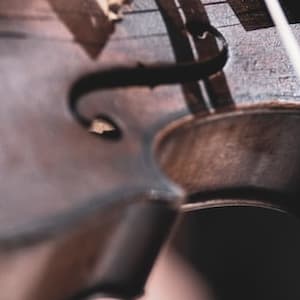all ears: Idiom Meaning and Origin
What does ‘all ears’ mean?
The idiom "all ears" means to be very attentive and eager to listen to someone or something. It implies being fully engaged and ready to hear what is being said, indicating curiosity and interest.

Idiom Explorer
The idiom "listen up" means to pay attention or give one's full attention to what is being said or done.
The idiom "give ear" means to listen attentively or pay close attention to something or someone.
The idiom "eye up" means to look at or observe someone or something with interest or desire, typically in a romantic or sexual way.
The idiom "eyes on the prize" means to keep one's focus and attention on achieving a goal or desired outcome in order to be successful.
The idiom "every inch" means completely or in every possible way. It emphasizes the thoroughness or completeness of a person or thing.
The idiom "easy on the eye" means visually attractive or pleasing to look at.
An "ear tunnel" refers to an imaginary passage that allows sound to reach the brain. The idiom is used to describe someone who is a good listener or who easily understands and absorbs information.
The idiom "ear to the ground" means to be attentive and aware of what is happening or about to happen in a particular situation or context.
The idiom "ears are burning" is used when you get the feeling that someone is talking about you, often in a negative or gossiping way.
The Listener's Mindset
All ears is an idiom that is commonly used in the English language. When someone says they're "all ears," it means they are paying full attention and eagerly listening to what another person is saying. The origins of this idiom can be traced back to the late 18th century in the United States.
The phrase "all ears" is believed to have originated from the idea that when someone is truly engaged in a conversation, their ears become the most important sensory organ. It suggests that the person is fully focused on what is being said and is receptive to receiving information or instructions.
There are several theories about the exact origin of this idiom. One theory suggests that it may have originated from the concept of horses being attentive and pricking up their ears when listening to their rider's commands. This theory is supported by the fact that the idiom first appeared in written texts in the early 19th century, around the same time when horseback riding was popular.
Another theory suggests that the idiom may have been influenced by earlier idioms that used similar imagery. For example, the phrase "to give someone an earful" dates back to the 17th century and refers to someone speaking to another person at length. This may have served as a foundation for the development of the idiom "all ears," indicating a heightened level of attention and receptiveness.
The idiom "all ears" is primarily used in informal contexts, such as casual conversations among friends and family members. It is commonly used to indicate genuine interest and active listening. For example, if someone tells you a story and you respond with "I'm all ears," it means you are eager to hear what they have to say and are fully attentive.
While the exact origins of the idiom "all ears" are uncertain, its figurative meaning and usage in everyday conversation remains prominent. It is important to note that the idiom should not be taken literally. It does not imply that a person physically transforms into a being with only ears. Rather, it conveys the idea of someone being fully attentive and receptive to what is being said.
Now let's explore some related idioms that are connected to the idiom "all ears." One of these idioms is "give ear." This phrase is used to mean listening attentively to someone. It is similar to "all ears" in that both idioms indicate a high level of attention and engagement in a conversation.
Another related idiom is "listen up." This phrase is typically used to get someone's attention and convey that they need to listen to what is about to be said. It shares a similar meaning with "all ears" in that it emphasizes the act of listening and being fully present in a conversation.
Another related idiom that shares a similar meaning with "all ears" is "ear to the ground." This phrase is often used to describe someone who is well-informed and attentive to the latest news or updates. It signifies a heightened level of awareness and receptiveness, just like "all ears."
Lastly, there is the idiom "bend someone's ear." This phrase is used to mean talking to someone at length or in a persistent manner, often about a specific topic. While it is not directly related to the act of listening, it can be connected to "all ears" in the sense that it implies a strong focus and engagement in a conversation.
The idiom "all ears" is commonly used in the English language to indicate attentiveness and eagerness to listen. Its origins can be traced back to the late 18th century, although the exact origin remains uncertain. The idiom is primarily used in informal contexts and serves to emphasize the listener's interest and engagement in a conversation. When someone says they're "all ears," you can be sure that they are fully focused and ready to listen.
Example usage
Examples of how the idiom "all ears" can be used in a sentence:
- I'm all ears, please go ahead and tell me your idea.
- She was all ears during the lecture, taking thorough notes.
- He promised to listen without interrupting and said he was all ears.
More "Expression" idioms



